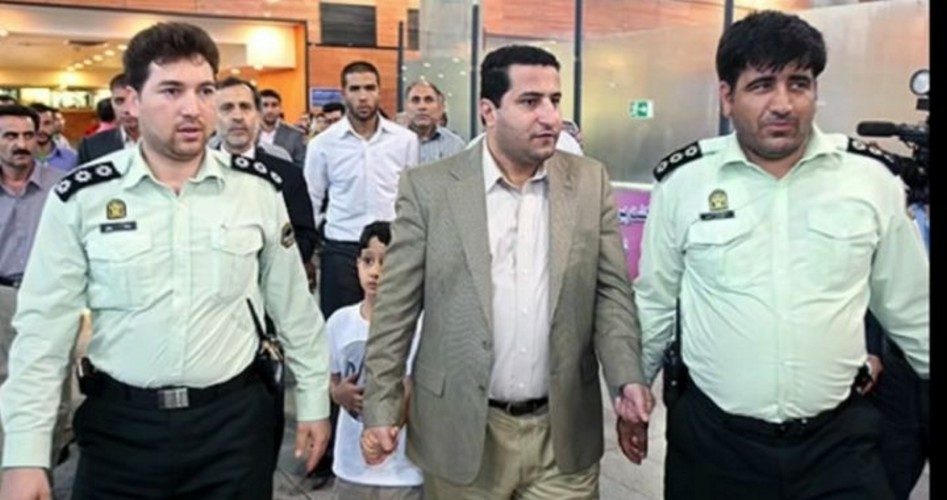
State-sponsored hackers penetrate the systems of other nations. It happens regularly. The United States does it. China does it. Russia does it. Iran does it. Sometimes, hacking reveals that someone in the hacking nation is working with the enemy. When that happens, someone dies. Sometimes, a secretary of state receives e-mails — on her unsecured, private e-mail server — about an Iranian scientist who is providing information to the United States and then that scientist is later executed for espionage.
Throughout the scandal surrounding her use of an unsecured, private e-mail server, Hillary Clinton claimed that she “never sent or received any e-mail that was deemed classified, that was marked classified.” That, of course, is not true. In fact, she sent or received at least 2,079 e-mails containing classified information and at least 113 of those were marked classified at the time she sent or received them. And some of those e-mails contained details about Iranian nuclear scientist Shahram Amiri (shown in sport coat) and the fact that he was providing information to the United States about Tehran’s nuclear weapons program.
Amiri disappeared from Saudi Arabia while on a religious pilgrimage to Mecca in late May or early June 2009. When Iranian officials accused the United States of abducting Amiri, U.S. officials — including Secretary of State Hillary Clinton — denied any knowledge or involvement, saying they had “no information” on his whereabouts.
Then, on June 7, 2010 — a year after he went missing — Amiri posted two YouTube videos. In the first he claimed he had been abducted by the CIA and Saudi security forces and was being held against his will in Tucson, Arizona, where he was tortured for information. In the second video, he said he was in the United States on his own and that he was continuing his studies.
Three weeks later, he posted another video claiming he had escaped and was trying to return to Iran. Two weeks later, he went to the Iranian interests section of the Pakistani Embassy in Washington, D.C., and asked for help getting home to his wife and son in Iran. An embarrassed Department of State scrambled to figure out how to control not only the narrative, but also Amiri.
After Amiri — who appears to have provided important information to U.S. officials — posted that last video and before he went to the Pakistani Embassy, Clinton received e-mails about the situation and the developing response to it. Those e-mails — which came in on her unsecured, easily hackable, private, unauthorized e-mail server — were unambiguous about the fact that Amiri had cooperated with U.S. officials.
One e-mail from Jake Sullivan addressed the need to control the media narrative. Sullivan, who is now involved in much the same capacity in the Clinton presidential campaign, wrote, “The gentleman you have talked to Bill Burns about has apparently gone to his country’s interests section because he is unhappy with how much time it has taken to facilitate his departure.” Bill Burns was a top State Department official during Clinton’s tenure as secretary of state. Sullivan added, “This could lead to problematic news stories in the next 24 hours. Will keep you posted.”
Richard Morningstar, who was 2nd Special Envoy for Eurasian Energy during Clinton’s secretariat, e-mailed her in reply to a previous conversation. That conversation seems to have been about the legal ramifications of Amiri’s plan to return to Iran. Morningstar wrote, “Per the subject we discussed, we have a diplomatic, ‘psychological’ issue, not a legal issue.” Adding, “Our friend has to be given a way out. We should recognize his concerns and frame it in terms of a misunderstanding with no malevolent intent and that we will make sure there is no recurrence. Our person won’t be able to do anything anyway. If he has to leave, so be it.”
The day Amiri returned to Iran, the New York Times reported that U.S. officials had admitted that Amiri had “defected to the United States” and “had been an informant for the Central Intelligence Agency inside Iran for several years, providing information about the country’s nuclear program.” Apparently, Secretary Clinton and other U.S. officials had figured out a way to control both the narrative and Amiri. They gave him up. The statements by U.S. officials were tantamount to a death warrant.
Amiri continued to claim that he had been abducted, held against his will, and tortured. He was initially given a hero’s welcome when he returned home, but the news of U.S. officials claiming he had been offered $5 million and a new identity for his assistance quickly shifted the light in which he was viewed by Tehran. What’s more, those U.S. officials knew that their statement would have that very effect. One official who spoke to the Times on the condition of anonymity said, “His safety depends on him sticking to that fairy tale about pressure and torture,” adding, “His challenge is to try to convince the Iranian security forces that he never cooperated with the United States.”
Of course, that challenge was made even more challenging given statements like that. It is interesting that that official hid behind anonymity while helping remove Amiri’s defense of being forced. With friends like these, who needs enemies?
Perhaps Amiri could have convinced Tehran that the United States was upset that he had escaped. Perhaps he could have also convinced Iranian officials that the Great Satan was merely being vengeful (which appears to be not very far from the truth). Perhaps. After all, nations who spy on each other also lie to and about each other.
If, however, Iranian hackers ever saw those e-mails (which, considering the lack of encryption and security on Clinton’s bathroom server, is not a stretch), the truth would have been immediately clear.
Whether that is the case or not, this case certainly demonstrates that Hillary Clinton, as Senator Tom Cotton (R-Ark) said, was “reckless and careless” and that “her judgment is not suited to keep this country safe.”
Now, of course, Clinton is running for president and — if elected — will have even more opportunities to demonstrate the ways her “judgment is not suited to keep this country safe.” As she would have even more access to deeper and darker secrets, her “reckless and careless” attitude toward national security could well mean the deaths of more than just one brave Iranian scientist who was willing to help the United States. God help us.




